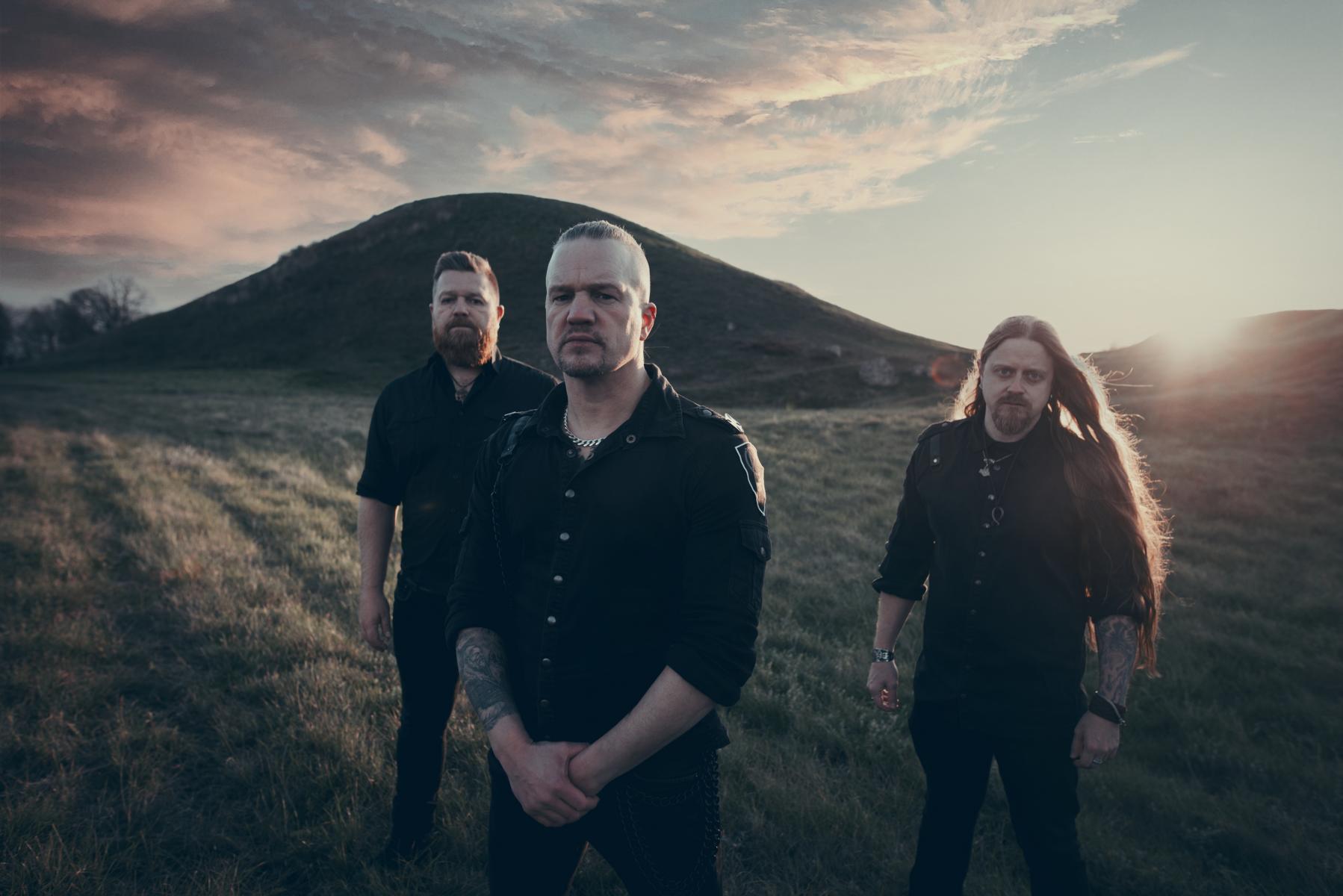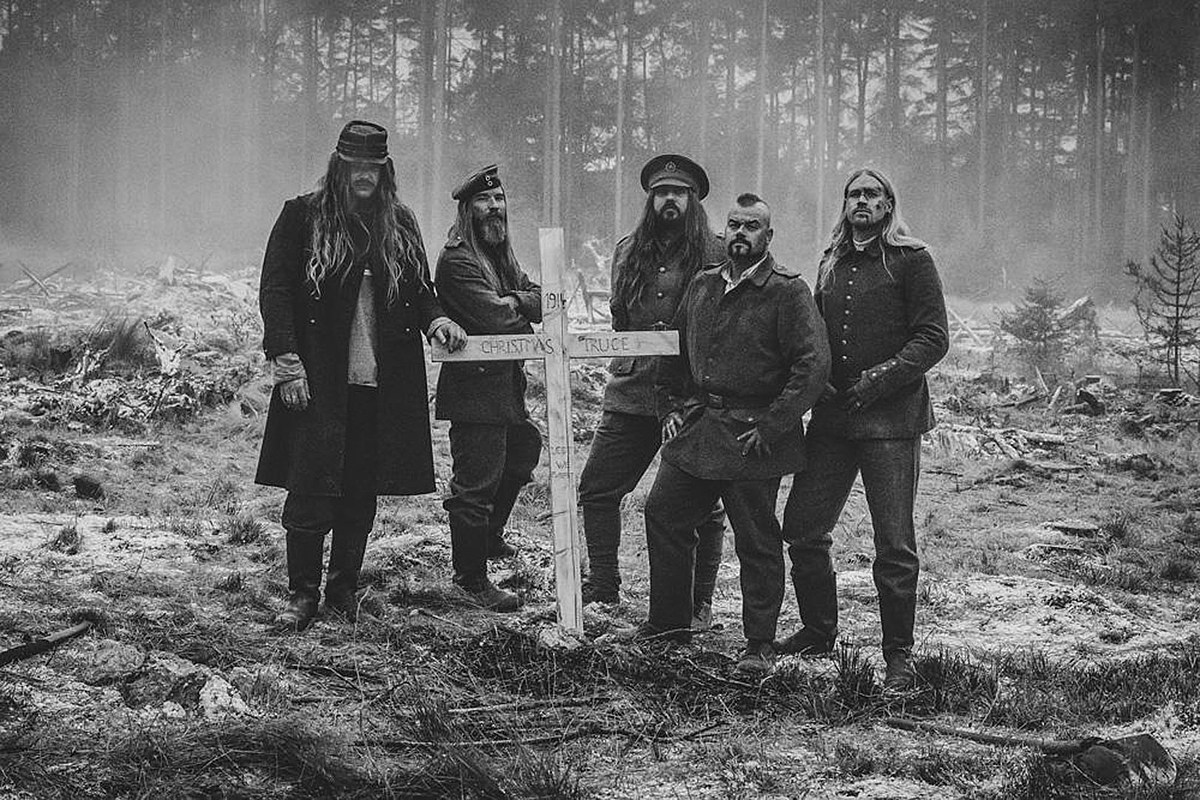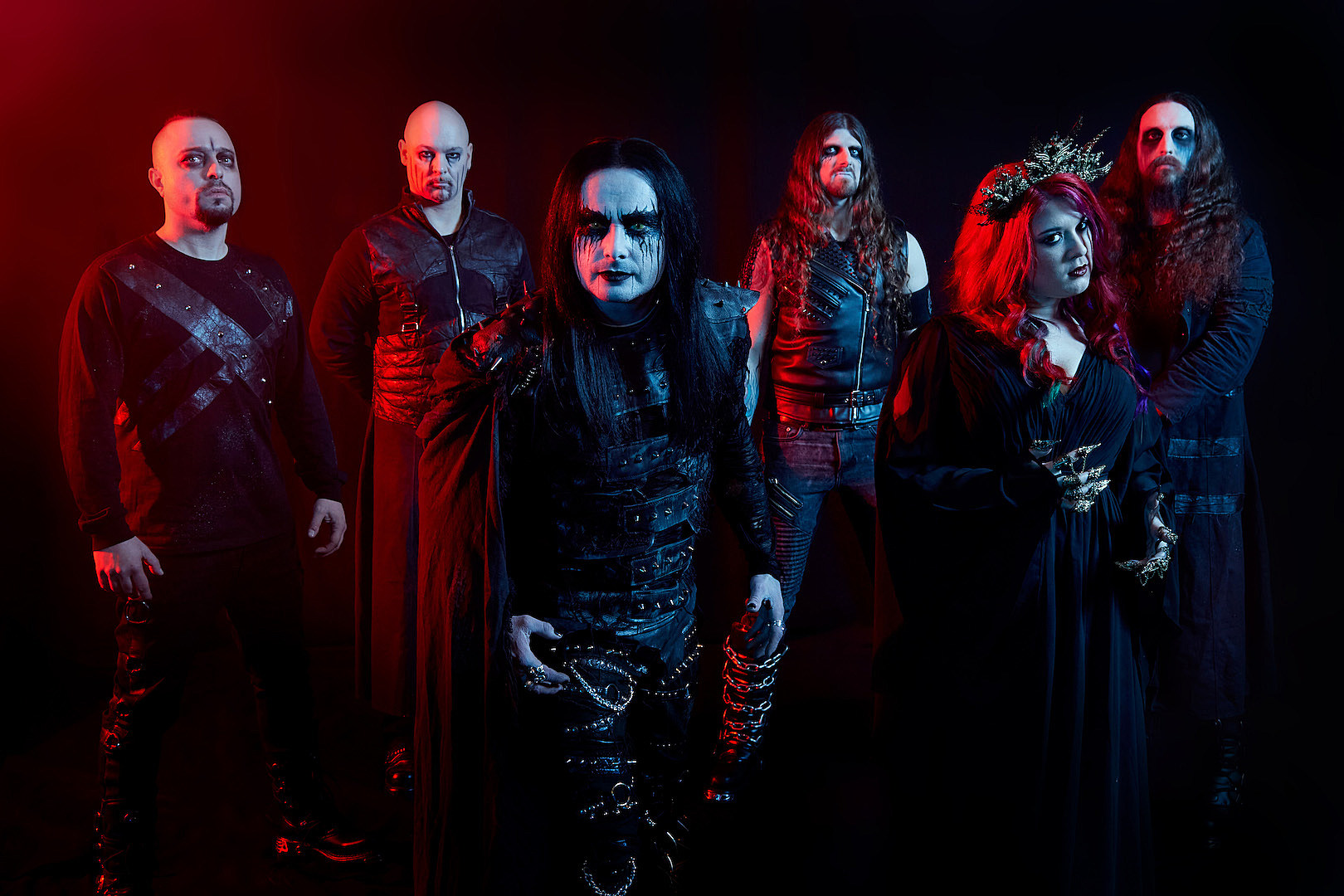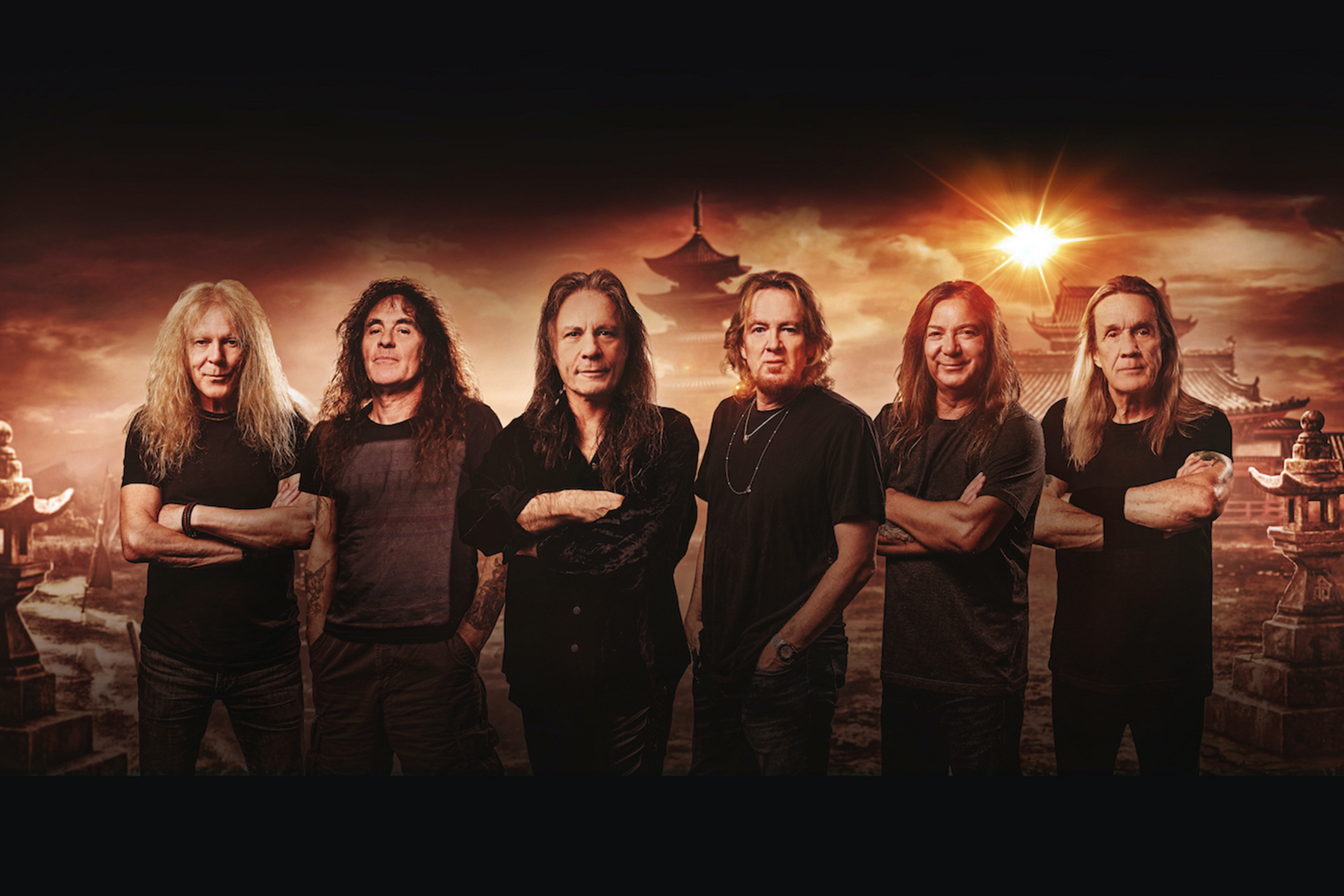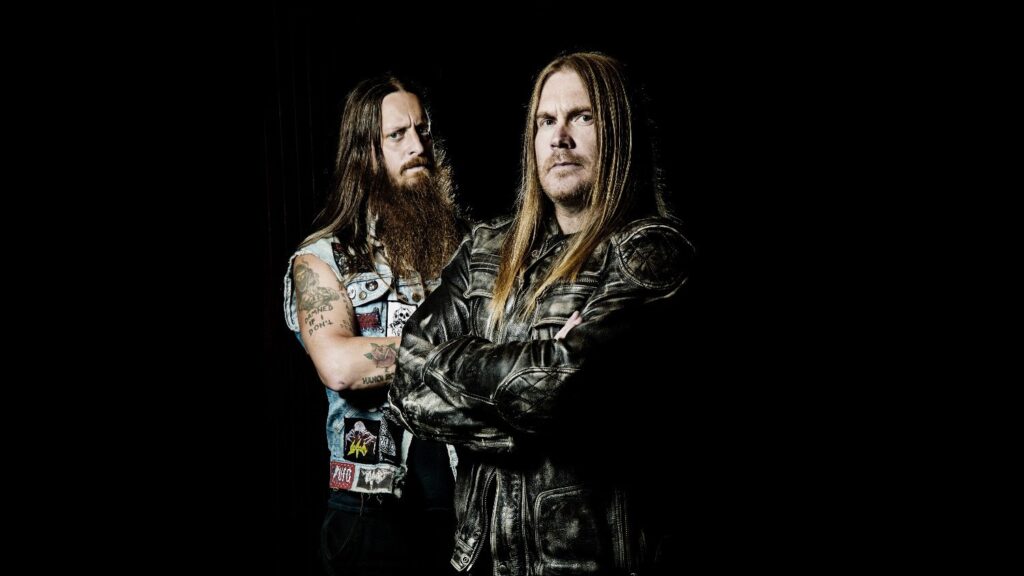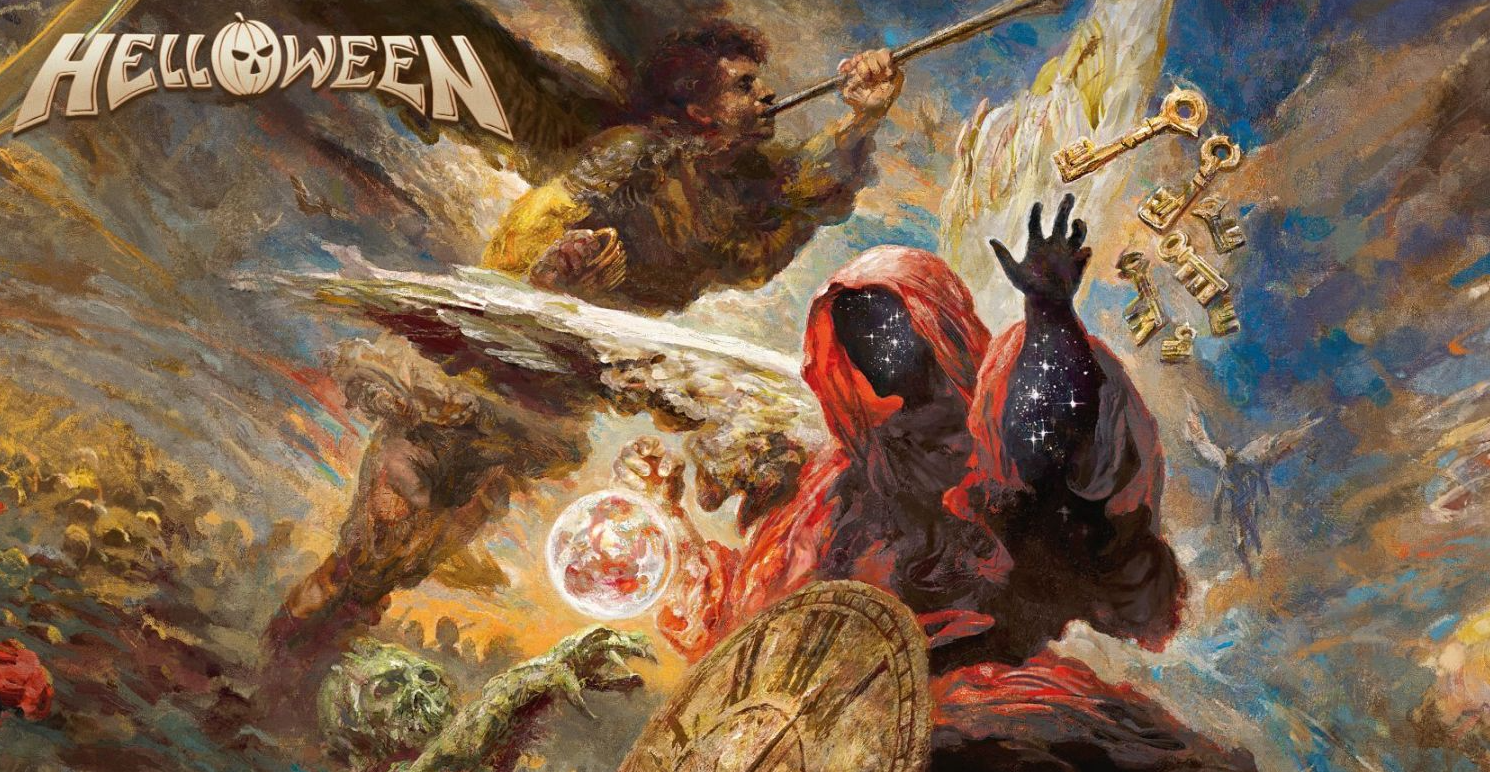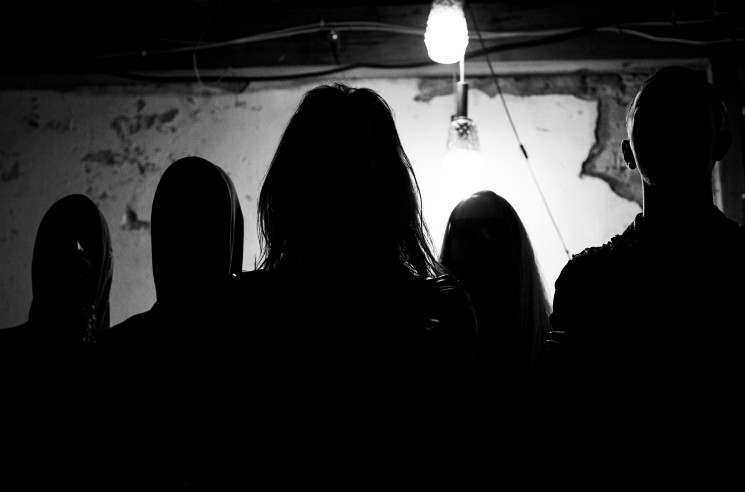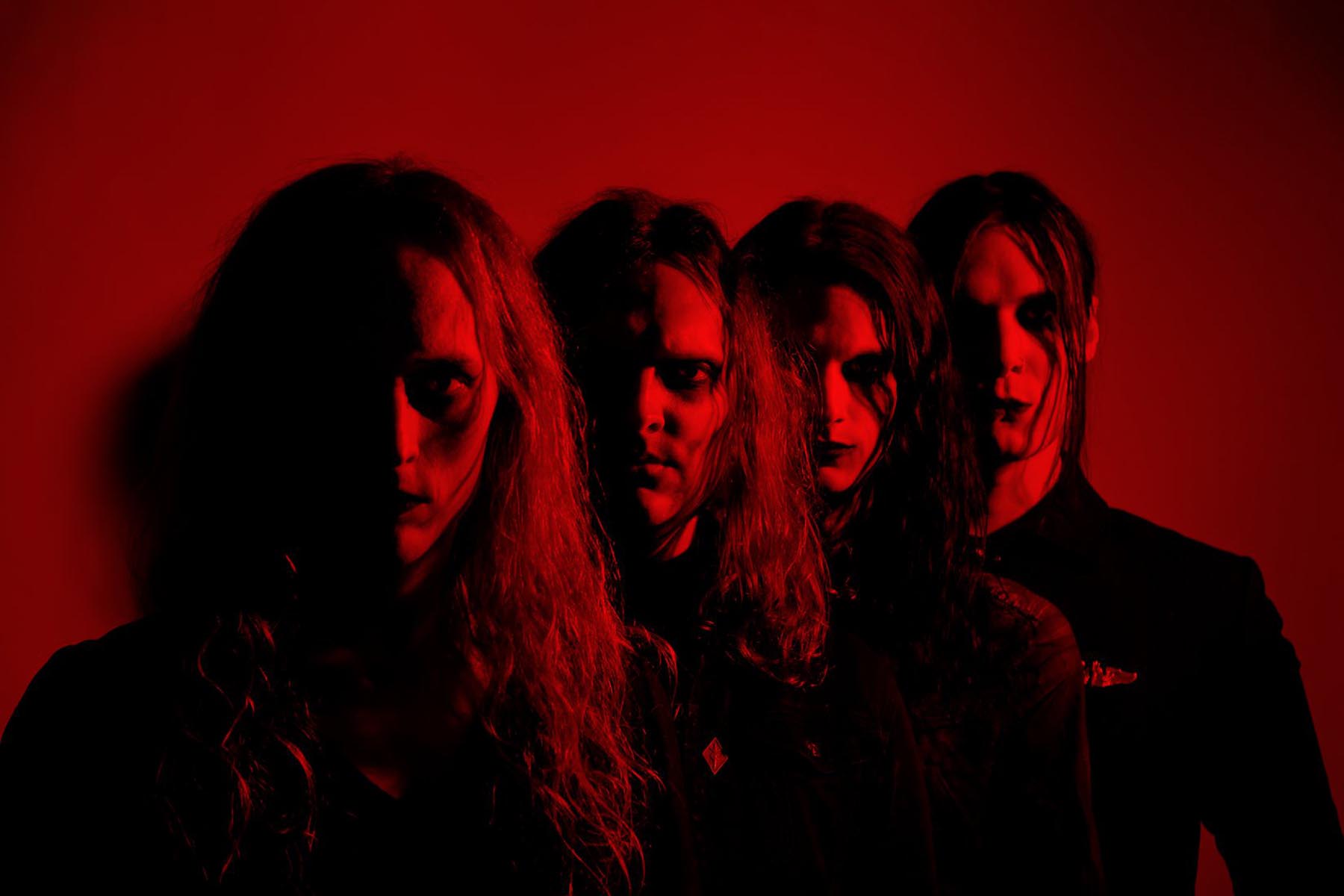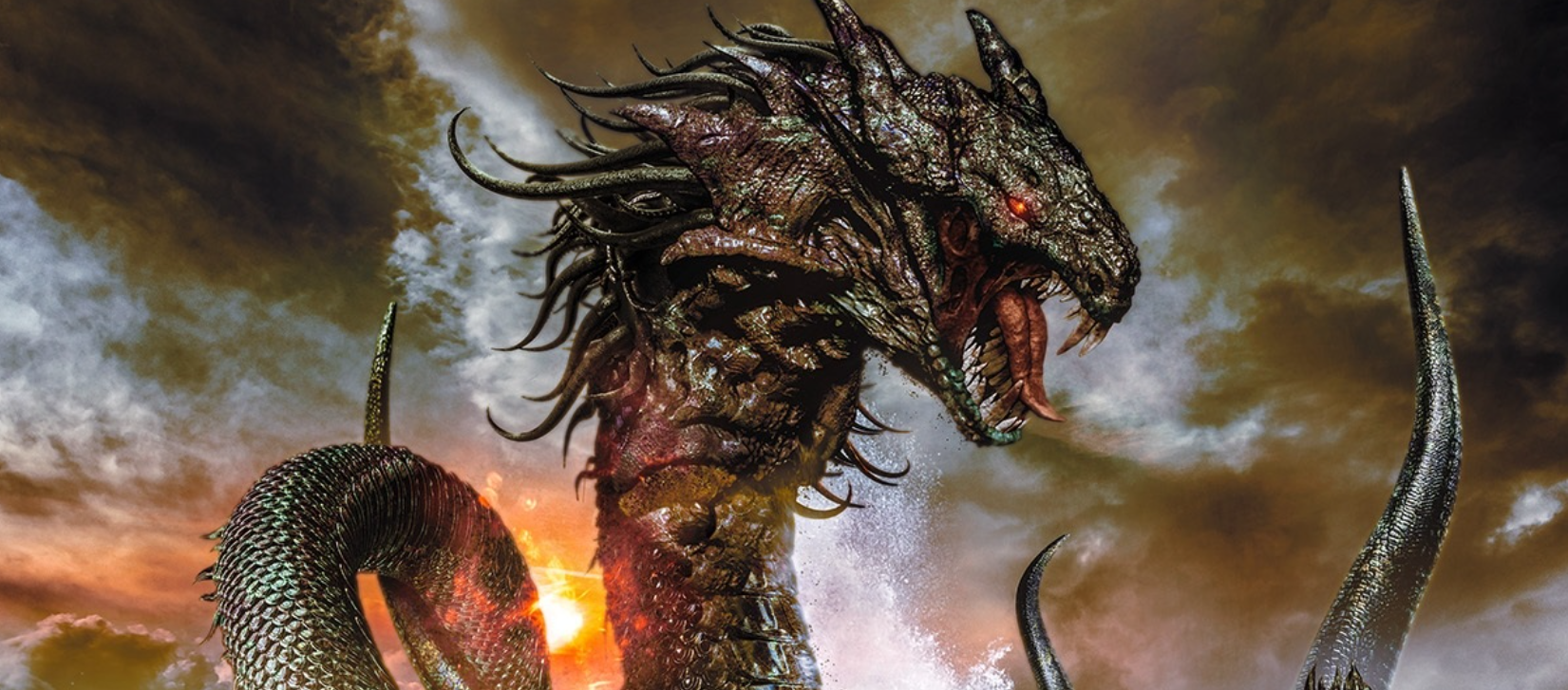A lot has happened since my last update on the metal front, namely that I’ve seen an armful of bands live within the past month and a half. In April I finally had my pandemic delayed opportunity to see Seven Spires live and they did not disappoint, despite having a setlist that was limited in scope and set length to focus on the last album and just a few songs from the much beloved Emerald Seas (come to think of it, I don’t think they did anything from Solveig). I even got to say hello to Adrienne and Jack who were on the floor watching Firewind with the rest of us after their set — funnily enough, those two were also at the Rotting Christ/Borknagar show the other night here on the Devastation For the Nation’s Houston stop, although I didn’t see them personally and only found out through her Instagram story later. Oh yeah, getting to see Borknagar live for the first time was as my buddy Maurice at the show commented, a definite “bucket list” moment. Despite no Vintersorg in the lineup (and thus none of his era’s songs getting an airing), it was still an unforgettable experience and they were brilliant on stage in their own inimitable way. I’d seen ICS Vortex live way back in the day with Dimmu, but he was definitely way more in his own element here, his stage presence more attuned to being in a jam based band than the rigidity we’ve come to expect from black metal bands live. I also can’t express how surreal it was to see Oystein Brun in person, not that he’s a big celebrity even in the metal sense, but because this is a guy I’ve known about for twenty years now never thinking I’d get to see him play live.
What else? Oh yeah, of course, the epic two day Hells Heroes IV Fest that happened over the course of April 22nd-23rd where I got to see Candlemass for the first time ever (speaking of bucket list) on Friday night as the downstairs headliner, and High Spirits on Saturday night as the upstairs headliner. There were other tremendous bands I saw that weekend, Eternal Champion was brilliant live, I really loved Sumerlands who were way more fierce live than I was expecting, and getting to see Midnight again (who were the secret special guests) was a treat. I know Midnight had an album released back in March, and it sounds you know, like Midnight and it’s pretty good, but this is a band that I think is that rare bird that is best experienced live because they might be one of the best live performers in metal as a whole right now, just pure intensity and adrenaline when they’re onstage). On a recent MSRcast, we talked a bit in depth about the Hells Heroes experience, and quite a bit about how the expansion of an outdoor seating/merch/chilling area made the entire fest way more manageable and pleasant on a personal energy level than it was back in 2019, and I have to give praise to the organizers for that. It’s a great event and everyone should consider buying a ticket and coming down for it (that is, after I’ve bought mine of course).
There is also the recent slate of new music to cover, and I’ll be honest I’ve been listening to some albums far more than others. Månegarm and Lords of the Trident really occupied a lot of my metal listening time for the past few weeks, along with finding myself dipping back into Bruce Dickinson’s solo catalog (his speaking gig that I saw back in, what February(?) has apparently lingered in my mind since). I was jamming a bit of Dragonforce and Spires in the wake of that terrific gig, and went off on a post Hells Heroes tangent with some of the bands I got to see there as well. Recently its been Therion because they’ve dropped a new single and I couldn’t resist checking it out — it sent me on an indulgent spree of spinning their classic late 90s masterworks. This means I’m of course behind on new music, but thankfully I have people like Christian and Justin sorting through a mess of new music and I can afford to be a bit picky by really focusing on their recommendations, some which are landing and some not so much (opinions?!). Anyway here’s some of that in no real order below:
Månegarm – Ynglingaättens öde:

It feels like its been ages since an album has captured my heart and imagination the way the newest album by veteran Swedish OG folk metallers Månegarm has. This was a release day discovery, with me stumbling around the metal release calendar that Friday morning looking for anything interesting that had come out, and seeing this on it. I was utterly blown away from the very first song and all throughout this nine track masterpiece (I try not to use that term unless its warranted, and it absolutely is here), Ynglingaattens ode being a likely contender for the album of the year spot, because seriously this might be the most giddily surprised I’ve felt about anything metal wise since Seven Spires Emerald Seas. I’ve been a fan of the band since Havets vargar way back in 2000 when folk metal was exploding out of Scandinavia and Europe and felt nascently raw, vital, and fresh. I have in the past few years pointed out how there has been a quiet resurgence of both new and veteran folk metal artists who are releasing really strong records that harken back to that era, before the genre became bloated with gimmickry and goofiness. Thankfully Månegarm has been part of combating that nonsense for a good while now, with their 2019 album Fornaldarsagor landing on that year’s best albums list here, their most inspired offering in well over a decade. And they pick up right where they left off on this new album, slightly stepping away from Fornaldarsagor’s more blackened aggression to make room for more of their rootsy Scandinavian folk melodies this time around.
As if to prove that statement wrong, the album opener “Freyrs blod” comes striking out with a vicious frenetic aggression that would suggest otherwise at first. At around the two minute mark however, guitarist Markus Andé introduces subtle but gorgeous, grandiose sounding melodic progressions to accompany vocalist Erik Grawsiö’s soaring, leather worn clean vocals. I’m almost positive my eyebrows raised when I first heard this moment, it made me really sit up and take notice and by the time the hushed, folk string adorned vocal passage unfolded a minute and a half later, I was completely entranced. This is a ten minute song, something I honestly didn’t even realize until writing this review, because it doesn’t feel like ten minutes and not once was I aware of it’s length, a success in and of itself. It’d easily be the best track on an incredible album if it weren’t for the beautifully autumnal power ballad “En snara av guld”, with its sweetly melancholic violin accompaniment and a stunning vocal melody by Grawsiö. He’s joined here by his daughter Lea Grawsiö Lindström who turns in a really haunting performance, her voice a strikingly innocent yet mature counterpart to Grawsiö’s rougher textures. In the more purely folk ballad realm is the serene “Hågkomst av ett liv”, where recent Manegarm collaborator Ellinor Videfors sings wistfully to a lamenting melody with a subtle accompaniment by Grawsiö. I love that the band really dove deep on the folk side of their sound on this album, because I’ve always thought they had one of the most skillful and subtle touches when it came to working it into their overall sound. The melodies are brighter and more shimmering throughout this album, there’s a confidence here that suggests a comfortableness with their sonic identity — the result is an album that sounds spiritual, meditative and full of life.
Lords of the Trident – The Offering:

I love this album, and in classic Metal Pigeon fashion, it reached up from the inky blackness and slapped me without warning to become one of my most listened to records of the year thus far. The fifth album from Wisconsin based power metal goofs Lords of the Trident, The Offering represents a maturing and deepening of the band’s adventurous riff based power metal sound. There were hints that something like this was brewing on their 2018 effort Shadows From the Past, with some of those songs being incredibly solid, though I felt the album still felt a bit uneven throughout. That inadequacy is addressed here with not only a complete lack of any discernible weak spots across the board (a titanic accomplishment considering its 13 song track length), but with the band seemingly landing on a sound and overall approach that really rings true to them. This is power metal that is at once built on aggressive riffage, but at times plays on a balance of laid back hard rockin’ groove juxtaposed with strident, classic Edguy invoking adventurous power metal drive and gusto. The game changer lies not only on the instrumental front, but in how vocalist Fang VonWrathenstein (née Tyler Christian) has improved in leaps and bounds. Christian turns in a vocal performance here that is impassioned and rich, full of power but still capable of nuance and emotive inflections in his approach. It’s maybe my favorite vocal performance of the year overall, because it’s reminding me so much of a cross between Urban Breed and I dunno, maybe a lighter toned smoother vocalist like Tommy Karevik. His tone and delivery seems to be weighty and full of gravitas here, a more serious approach than he was dishing out on previous albums (which I’ll be honest, might have been why I wasn’t keen on their earlier stuff). The band is matching him too, turning out compositions that qualify this as a serious metal album despite the band members’ silly aliases. Songs like “Offering to the Void” and “Legend” have this beautifully vivid grandeur to them, soaring and majestic but still understated in their tonal color. Even when they cut loose with a wild rocker like on “Acolyte” or “Feed the Wolves”, there’s an intensity and precision here that is commanding my attention. Can’t say enough good things about this record, I’m really impressed and kinda relieved that a new power metal album has gotten me so fired up (there had been a concerning drought recently).
Trick or Treat – Creepy Symphonies:

Trick or Treat has been the Italian alternative for despondent fans of classic era Helloween, Gamma Ray, and Edguy who’ve longed for those bands to return to their lighter, more purist power metal sounds (though in fairness, Helloween has sorta gotten there). I’ve enjoyed their records on a mostly passing level since they debuted way back in 2006 with the unforgettably titled Evil Needs Candy Too, and have followed them since with a particular focus on seeing where Alessandro Conti’s various musical pursuits have led. While Conti’s classic power metal vocals are understandably the star attraction here, the band has really stepped up their efforts on the songwriting front this go around. One of the highlights here has them stretching their wings a bit on the power ballad front on “Peter Pan Syndrome (Keep Alive)” whose worrying title thankfully was disguising a gloriously uplifting, heartwarming gem the likes of which I’ve really missed hearing. I get major Avantasia with Kiske vibes on “Crazy”, and that’s a credit to Conti’s unnatural ability to sound a lot like the Helloween frontman when he hits a certain inflection. Conti and guitarist Guido Benedetti split the songwriting duties fairly evenly it seems across Creepy Symphonies, but there’s really a merging of styles with these two guys, a synchronicity in the way they’re approaching songwriting. In other words, Benedetti is just as liable to deliver songs with amply soaring vocals with arcing choruses as Conti is, there’s no discernible differences in approach that creates a noticeable dichotomy within the album. And I kinda like that because that consistency has yielded a truly fun, vibrant, and cheer inducing listening experience all throughout this album. Easily one of the strongest Euro-power albums I’ve heard in awhile alongside the Planeswalker album that came out earlier in the year.
Saidan – Onryō II: Her Spirit Eternal:

I’ve been addicted to this record as soon as I first checked it out, and in the weeks since that happened I’ve seen more and more people online talking about it here and there. Tennessean black metal duo Saidan deserve the traction, because this is kinda what I’ve been craving in black metal in a big way. On Twitter recently, user @VVolvenDaughter wrote “The thing black metal is missing is bangers. It’s an album genre, and good at atmosphere, but is distinctly lacking in standout songs that make you completely wreck your neck”, and while there are certainly exceptions to that statement, I largely agree with her. This is not to say that all black metal should be composed of attempts to write “bangers” either, because many of the black metal albums I do love are mostly textural, deeply layered, atmospheric experiences (cue Alcest and many other atmo-black records, as well as a majority of the second wave of black metal for that matter). But yeah, black metal could do with a crop of bands who understand the power of a headbanging worthy riff that stands out from the din of furious noise its usually buried by. When I saw Midnight at Hells Heroes, their blackened take on punky metallic speed metal was so effective at firing up the entire crowd live, and more recently, Rotting Christ’s hypnotic but arena ready riffs were absolutely commanding in a live situation. We were all banging our heads. And what I think Saidan get absolutely right on Onryō, their second album, is landing on that intersection between a densely layered, very much atmospheric experience while somehow being catchy as all get out with actual memorable riff sequences that cut through everything and smack you about the face. Take “Yuki Onna” for example, that melancholic yet aggressive intro riff repeating sequence is beguiling enough, but when the mid-song post bridge switch into a chugging, thunderous lumberjack of a riff kicks in, it’s deeply satisfying. There’s an excitement coursing through these songs, even the quiet interlude length cut with the odd name (“Kate”), where a tautly strung together clean guitar melody provides a tense backdrop for some breathy distant sounding melodic vocals. The truly killer moment is the entirety of the closing track “I Am The Witch”, where my only complaint is that the frigging awesome riff that kicks in at the five minute mark only sticks around for a minute before fading off to the conclusion (we needed a longer run of that one dammit). The sharpest and most hooky black metal album of the past two years easy, and that’s high praise considering the excellent records that have been delivered in that time frame.
Thunder – Dopamine:

This has been a nice surprise, a really strong new album by England’s hidden hard rock titans Thunder, a band that I’ll be honest, sort of fell off my radar over the past decade-ish plus. I first got into Thunder when I blindly bought a used cassette of their 1990 classic Backstreet Symphony way back in the mid-90s because the band name sounded vaguely metallic and the little band pic on the insert seemed to verify this as well. I had no idea who they were or where they came from (based on their sound I think for awhile I thought they were an American band), but I really loved that record and the band’s Bad Company meets classic GnR meets Tesla sound in general. I’d pick up a handful of their albums in the same secondhand way in scattershot fashion over the years and always enjoyed them, especially Laughing On Judgement Day, but looking over their discography page on Wikipedia now, I realize I’ve missed a ton of releases, particularly surprisingly high charting ones from the past handful of years. They’re a top ten charting band in the UK again, and clearly have experienced a revival of sorts, much like Magnum has recently with their past few efforts. If these other recent albums are anything like Dopamine, I can see why: This is confident, assured straight up hard rock from a veteran band that isn’t trying to be anything other than who they truly are. Songs like “One Day We’ll Be Free Again”, “The Western Sky”, and “Across the Nation” have that same recognizable no-frills hard rock attitude and swagger as anything off the first two albums, a refreshing sound to hear when lately I’ve been bouncing between all kinds of complexly layered extreme metal and densely layered K-Pop. I was particularly taken by the sparse piano adorned ballad “Is Anybody Out There?”, a great showcase that demonstrates guitarist Luke Morley’s songwriting abilities translate just as sharply with pure melodies as they do in cranking out memorable riffs. Vocalist Danny Bowes is nothing short of incredible here, emotive in his delivery and phrasing, landing on satisfying vocal runs and deftly handling delicate melodies. These two guys have a long track record together, and like similar duos in rock history (your Bob Catley/Tony Clarkin, your Jeff Keith/Frank Hannon pairings), they’re comfortable enough with each other to seemingly play to each other’s strengths. I’ve loved diving back into this really overlooked band (here in the States that is), and this has been a joy to listen to.

